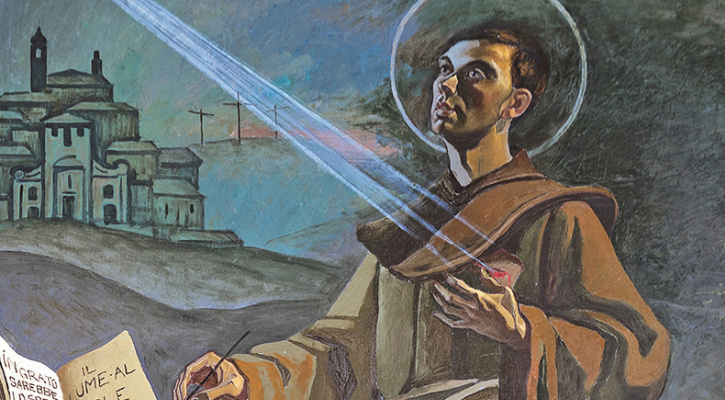Saint of the day for January 18: history of San Carlo da Sezze

(19 October 1613-6 January 1670)
Charles thought God was calling him to be a missionary in India, but he never got there. God had something better for this 17th century successor to Brother Juniper.
Born in Sezze, southeast of Rome, Charles was inspired by the lives of Salvator Horta and Paschal Baylon to become a Franciscan; he did so in 1635. Charles tells us in his autobiography: "Our Lord placed in my heart the determination to become a lay brother with a great desire to be poor and to beg for his love".
Carlo served as a cook, porter, sacristan, gardener and beggar in various convents in Italy. In a sense, it was "an accident waiting to happen". He once lit a huge fire in the kitchen when the oil he was frying the onions in caught fire.
One story shows how much Charles adopted the spirit of St. Francis. The superior ordered Carlo, then a porter, to feed only the traveling friars who showed up at the door. Charles obeyed this direction; at the same time alms to the friars decreased. Charles convinced the superior that the two facts were connected. When the friars resumed giving the goods to those who asked at the door, the alms to the friars also increased.
Under the direction of his confessor, Charles wrote his autobiography, The Grandeurs of the Mercies of God. He has also written many other spiritual books. He has made good use of his various spiritual directors over the years; they helped him discern which of Charles' ideas or ambitions came from God. Charles himself was sought for spiritual counsel. The dying pope Clement IX called Charles to his bedside for a blessing.
Carlo had a firm sense of God's providence. Father Severino Gori said: "By word and example he reminded everyone of the need to pursue only what is eternal" (Leonard Perotti, San Carlo di Sezze: A ' autobiography, p. 215).
He died in San Francesco a Ripa in Rome and was buried there. Pope John XXIII canonized him in 1959.
Reflection
The drama in the lives of the saints is above all interior. Charles's life was spectacular only in his collaboration with the grace of God. He was fascinated by the majesty of God and by the great mercy towards us all.